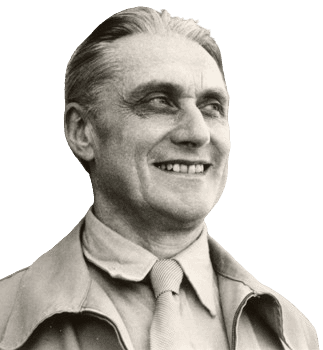Life and achievements
Early life
Ragnar Anton Kittil Frisch was born on March 3, 1895, in Oslo, Norway; he was from a family of goldsmiths. Like many of his generation, Frisch first learned the goldsmith trade, and his mother insisted he attend university. This led him to study economics at the University of Oslo, which he decided to join because it appeared to offer the shortest way to earn a degree. Frisch graduated in 1919, and he was able to further his studies under a fellowship that enabled him to study economics and mathematics in France, Germany, Italy, and the United States.
This was a very influential period in Frisch's life since it enabled him to interface with other academic institutions worldwide during the 1920s. He immersed himself in the new trends in mathematical economics, combining theory with quantitative data. After that, he returned to Norway, continued his studies, and earned his mathematical statistics doctorate in 1926. By this time, Frisch was determined to promote economics as a science that has its basis in mathematical theories. His earlier work was on probability theory and statistical methods, which were to form the basis of his later work on econometrics.
In 1930, Frisch co-founded the Econometric Society to encourage quantitative, mathematical, and statistical analysis in economics. His work started to receive international acclaim, and in 1933, he developed the first mathematical model for oscillating business cycles. This was the start of Frisch's life work to turn economics into a mathematical discipline that could solve real-world problems within the field.
Legacy
Ragnar Frisch's contribution can be summed up by the fact that he was one of the pioneers that helped shape modern econometrics. His view of economics as a mathematical science changed economists' perspective on evaluating economic structures. By doing so, he was able to show that such phenomena as business cycles and fluctuations in macroeconomics could be well explained through mathematical models. These two concepts, that is, the Frisch elasticity and the impulse-propagation model, are two concepts that have stood the test of time and are still relevant in the current economic research.
The first ever Nobel Memorial Prize in Economic Sciences to Frisch alongside Jan Tinbergen was a recognition of his transformative work worldwide. He was not limited to academic circles, as his models were used in governmental economic planning and policies. Frisch's contribution in establishing the Econometric Society and his service as the editor of Econometrica for an extended period made econometrics a part of the framework of contemporary economics.
Frisch's work is still considered of primary importance in economic analysis. He stressed the scientific method of research and made it a point to get his results empirically tested; his work profoundly influences how economists model economic processes. The Econometric Society honors the best works in econometrics through the Frisch Medal, which indicates the impact he left behind.
Milestone moments
May 15, 1926
Introduction of Econometrics
It was not until 1926 that Ragnar Frisch formally introduced the term 'econometrics' in a paper that can be considered the starting point of the field. His vision was to use mathematics and statistics in economics and thus make the field more quantitative.
Frisch's early work in econometrics aimed to bridge the gap between theoretical economics and measurement.
He wanted to equip economists with instruments that would allow them to compare hypotheses with empirical evidence and translate theoretical concepts into observable facts.
This contribution paved the way for the development of econometrics, which is now widely used in economic research and policymaking.
Dec 13, 1930
Co-founding of the Econometric Society
In December 1930, Frisch, Irving Fisher, and Charles F. Roos formed the Econometric Society, sealing his dedication to quantitative economics. The society was established to encourage the application of statistics and mathematics in economic analysis.
The Econometric Society played an important role in developing the field, and Frisch edited the journal Econometrica for more than twenty years.
During his tenure as chief editor, the journal became a significant outlet for publishing the most innovative research in econometrics.
This achievement contributed to fixing econometrics as an established branch of knowledge and stimulated further cooperation between scholars from different countries.
Aug 19, 1933
Impulse Propagation Model
Frisch introduced the impulse-propagation model in 1933. This model offered mathematical equations to explain fluctuations. It was developed into one of the first theoretical models of business cycle fluctuations and contributed to the development of macroeconomics.
As Frisch's model explained, impulses depicted how external shocks to the economy could reverberate through sectors, causing cyclical behavior in production, investment, and employment.
The model provided a fresh perspective in analyzing the causes of business cycles.
This work is regarded as one of the most essential pieces of modern business cycle theory and is still widely used in economic studies today.
Jul 22, 1961
Antonio Feltrinelli Prize
In 1961, Ragnar Frisch received the great Antonio Feltrinelli Prize from the Accademia Nazionale dei Lincei in Rome. This award recognized his essential work in econometrics and dynamic economic modeling.
The award stressed that Frisch's work was recognized internationally, and he was considered one of the most prominent economists of the period.
It also highlighted the usefulness of his models in solving real-life economic issues.
This recognition further enhanced Frisch's position within the academic and policymaking communities.
